Macs look like the future of PC gaming, whether PC gamers like it or not
Apple silicon could turn Macs into gaming consoles
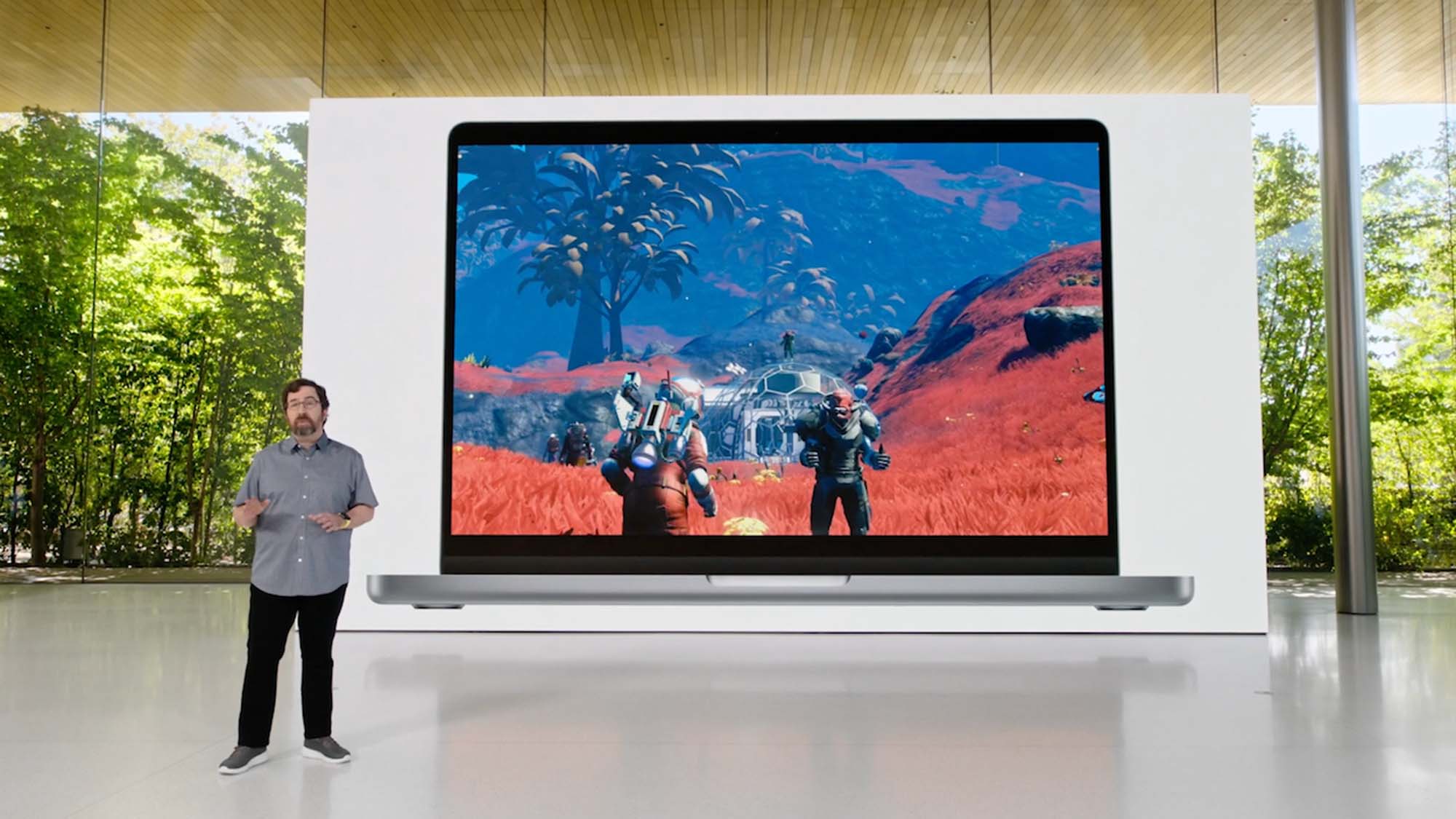
When we think about PC gaming, generally speaking, we don’t think about the Mac.
Most PC gaming rigs are brightly colored tower cases, acrylic or glass panels, and if you’re lucky, some fantastic custom water cooling solution that raises the best gaming PC to the level of artwork.
But the only thing that remains constant is change, and Apple, which has long been counted out of the PC gaming conversation (for very legit reasons) is finally turning its sights back on the gaming field it had all but abandoned two decades ago, and the company feels like it’s in a much better position to compete with Windows PCs than ever before.
“All MacBooks are gaming MacBooks,” Jeremy Sandmel, Apple's Senior Director, GPU Software, told me shortly after Apple’s WWDC 2022 conference back in June, where he took the stage to announce No Man’s Sky and Resident Evil Village would be coming to Macs as native titles, rather than post PC-launch, third-party ports. And while there’s a certain amount of bravado in that statement, it’s also a revealing one.
While I wouldn’t put an Intel-based MacBook anywhere close to the best gaming laptops on the market, or honestly even the best cheap gaming laptops either, Apple silicon really is another matter, entirely. And while Sandmel’s quip might strike some PC gamers as strange – if not downright offensive to the more hardcore among the audience – he's right in ways that even a lot of people might not yet realize.
PC gaming’s future will not be like its present

One of the things that has struck me the most about the current state of PC gaming in the past few years is how a once exclusive hobby-by-choice has increasingly become an exclusive hobby-by-attrition.
Playing the latest games with the best graphics cards and the fastest processors used to be the raison d'être of PC gaming. Consoles just couldn’t match the image quality and performance of even the best budget gaming PC and, later, gaming laptops brought to the table. PCs were what the truly dedicated game developers targeted for their titles, since only PCs could really give life to increasingly cinematic games like Half-Life, Crysis, Call of Duty, and other legendary PC titles.
Get daily insight, inspiration and deals in your inbox
Sign up for breaking news, reviews, opinion, top tech deals, and more.
But for many years now, console gaming has shifted to become the primary platform for AAA gaming, largely because too many gamers are being priced out of PC gaming by the shocking cost of the required hardware. The Nvidia RTX 3080 Founders Edition costs $699 / £649 / AU$1,139 at MSRP, which is enough money for a gamer to buy a PS5 or XBox Series X | S and a cheap 4K TV to play it on.
Most gamers have long given up on experiencing 8K gaming on their PC.
It might not be the face-melting 8K graphics teased by Nvidia for the RTX 3090, but at roughly double the price of the RTX 3080 Founders Edition, most gamers have long given up on experiencing 8K gaming on their PC.
This has shifted the way game developers are starting to approach the games they make. As more players migrate to next-gen consoles over gaming PCs, developers are realizing the benefit of targeting console development over the various configurations of high-end gaming PCs that exist on the market, and console gaming is now powerful enough to deliver PC gaming-like experiences at a much cheaper cost.
Since Sony and Microsoft can tell game developers years in advance what kind of hardware to target, and even provide early dev kits years in advance, this gives developers the ability to optimize a game to a tightly controlled and specific hardware configuration.
It’s this advanced and focused knowledge that enables an AMD Zen 2 processor and an AMD Radeon RDNA 2 GPU with about as much power as the 1080p card in our AMD Radeon RX 6650 XT review to pump out 4K graphics, with ray tracing, at 120 fps on the PS5. A lot of the quality depends on the developer itself, but knowing what your game is going to be playing on gives you a considerable advantage.
There’s another platform that shares this same essential characteristic: Macs, and particularly those with the Apple M1 chip and its more powerful variants.
Are Macs and MacBooks growing into gaming consoles?
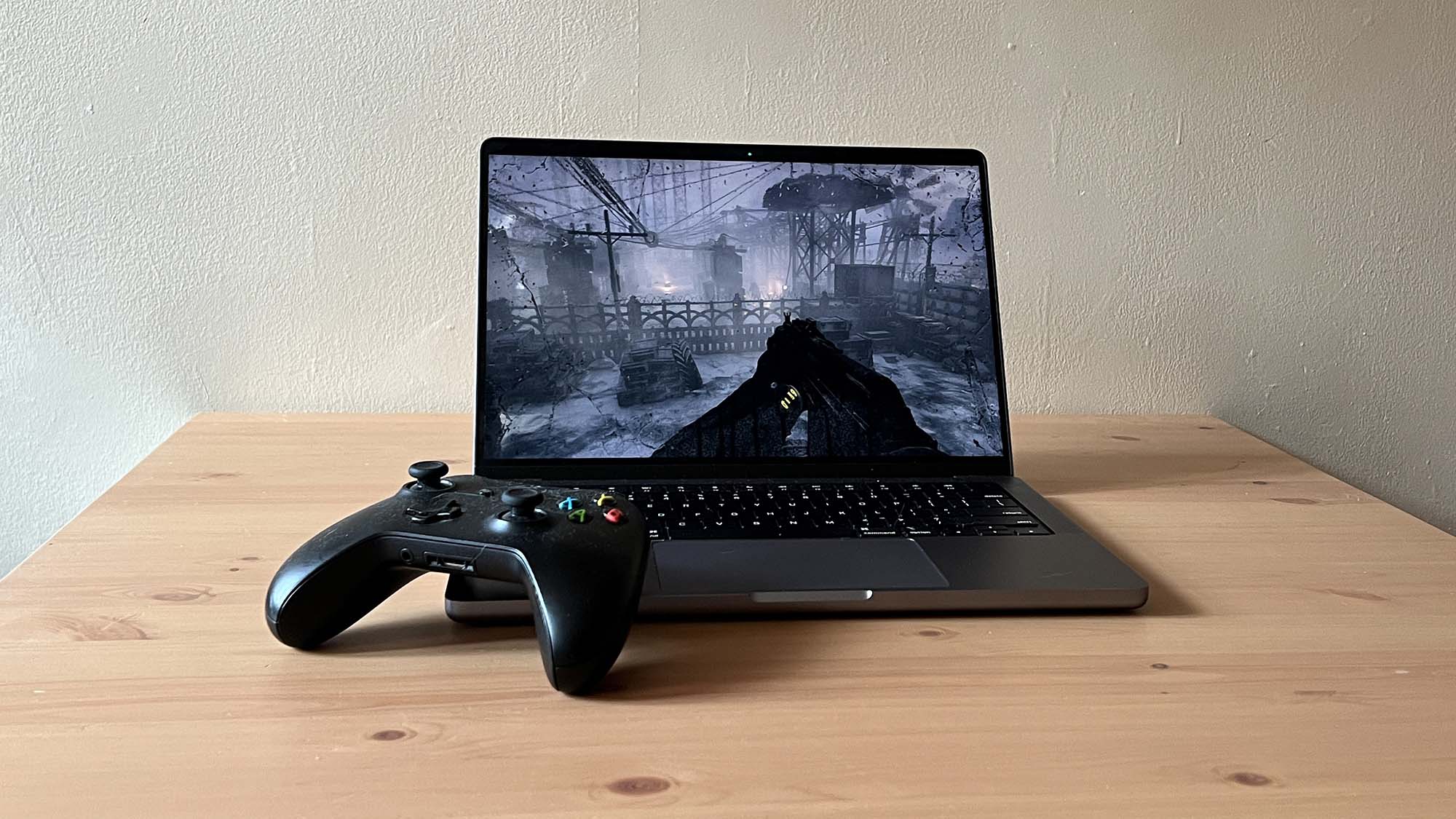
Again, I think back to what Apple’s Sandmel told me when I asked him when Apple would develop and release a gaming MacBook: “All MacBooks are gaming MacBooks.”
In a PC gaming landscape where so much different hardware exists that must be accounted for, it’s little wonder why developers are starting to primarily target consoles, rather than developing for high-end PCs and porting to weaker consoles afterwards.
The release of Elden Ring earlier this year is a perfect example of a game that ran brilliantly on consoles, but ran into persistent issues when running on a PC, despite its more accessible requirements for major AAA launch. Making sure that as many PCs can play your game as possible is a growing bottleneck in game development made especially problematic when developers regularly face long periods of unpaid crunch time, even for console releases.
Ultimately, it’s an obvious weak spot in a game studio’s roadmap, one that once made developing AAA games natively for Macs entirely unthinkable. With a shrinking user base, the math simply fails to math at some point: if it costs more to develop for a platform than you’re ever likely to make from releasing on that platform, you simply don't release it on that platform.
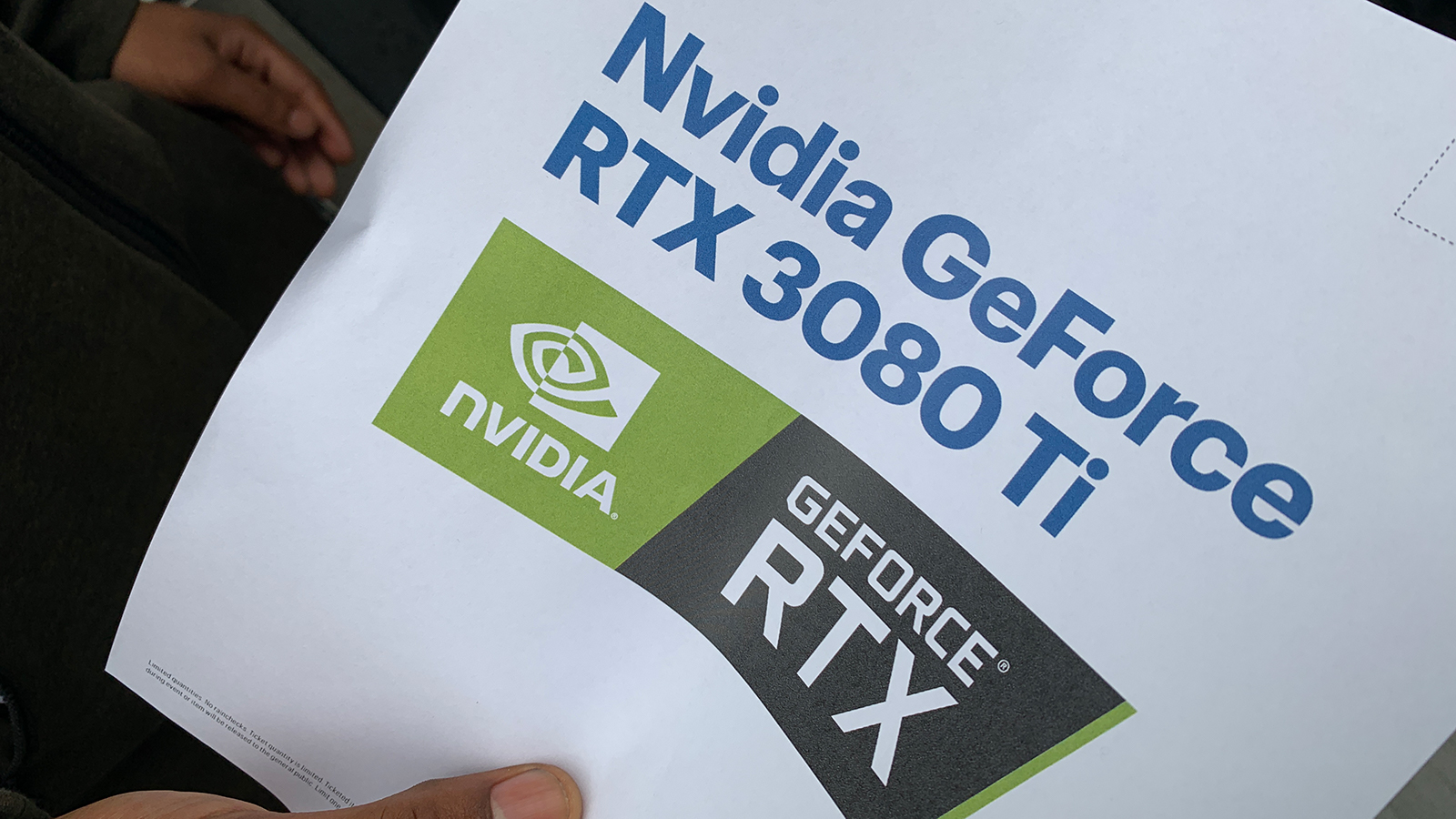
With every new hardware generation adding a dozen or more additional components to account for, the cost of PC development grows, creating a diseconomy of scale for Windows PCs from which there is no easy way out from a business perspective, other than to cut bait and raise the minimum system requirements that a game will support, further locking out players from the PC gaming experience.
Meanwhile, as the price of PC gaming components continues to soar and more and more gamers move away from the traditional gaming rig out of necessity, the platform incentives for game developers are going to continue to shift away from high-end PC builds. Both the financial and practical incentives all point toward more predictable and simpler console configurations that allow for more time spent on optimization, rather than providing the broadest base of support possible.
It's a real big advantage to have not only the CPU and the GPU integrated, but also the memory all being on one package."
Adrian Gurney, CCP Games
This is a shift that Apple is well-positioned to capitalize on, thanks to Apple silicon and Apple's very exacting hardware specifications.
“It's great!” Adrian Gurney, the Producer & Development Manager for CCP Games’s space-faring MMO EVE Online, told me a few weeks ago. “I mean, just to kind of look at it from my point of view with my tech hat on, it's a real big advantage to have not only the CPU and the GPU integrated, but also the memory all being on one package.”
“I mean, obviously, you get better performance naturally,” Gurney continued, “because you haven't got all the interconnects between the devices. But more importantly than that, when it comes to things like testing … testing how it looks, and does it render correctly, and all that, you can come in and validate that the result is correct, it doesn't matter which Mac we're testing it on. If it's an M1-based architecture, we get the same result from all of them.”
Can Apple finally capitalize on its gaming potential?
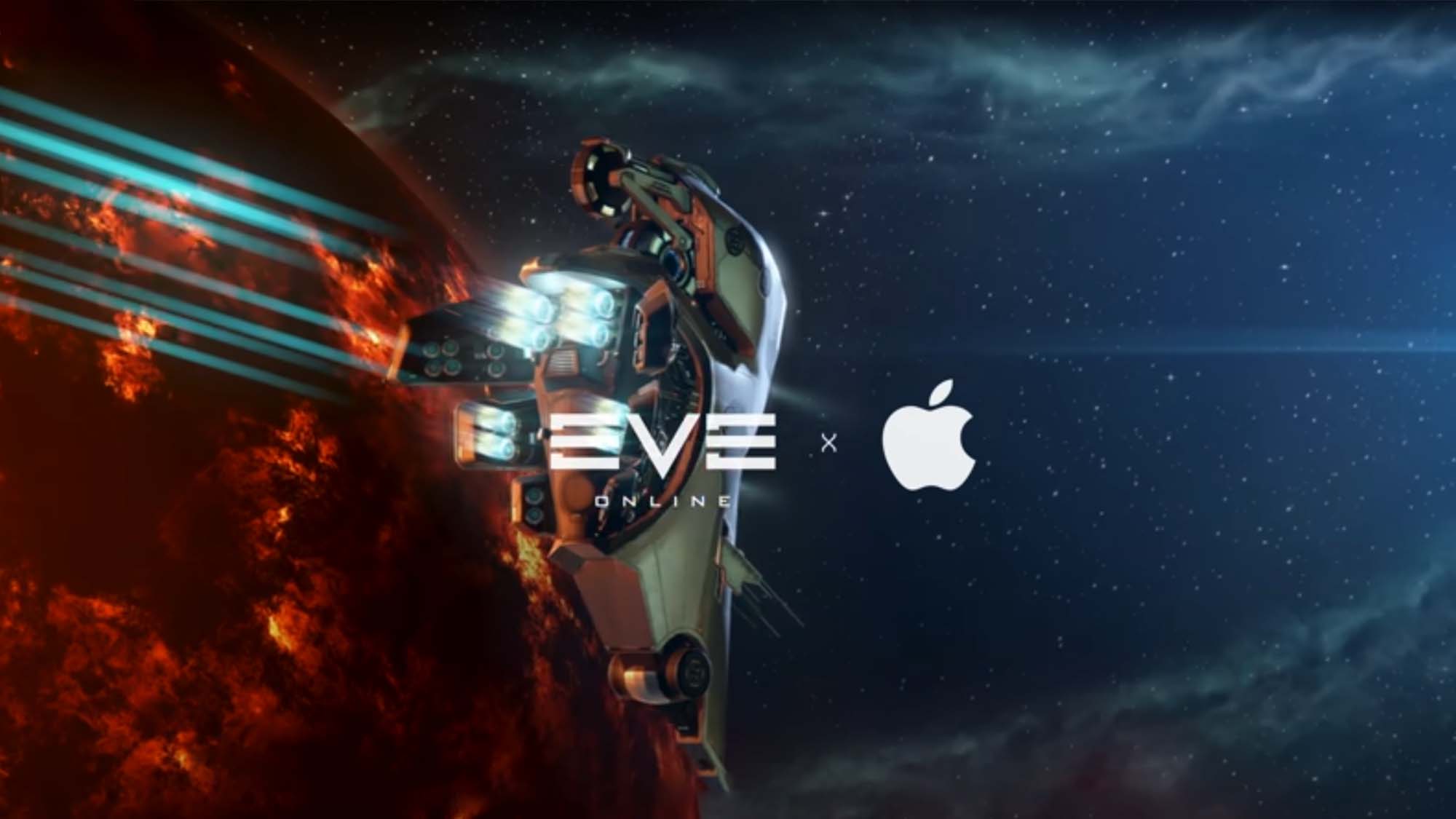
As a life-long Windows PC gamer – my formative PC gaming experience was unloading the Windows 3.1 operating system with a .bat file on bootup from a floppy disk to free up the 3MB RAM so I could play MechWarrior 2 on PC-DOS. So don’t come at me, gamers, I’ve been at this since you’ve been in diapers. There is something about Apple silicon that feels like the future to me, whether PC gamers like it or not.
Nobody is pretending that the Mac gaming catalog doesn’t have some very notable gaps – including many of the best PC games of the past several years, like Elden Ring – or that it doesn’t have a tendency to mix the world of mobile and PC gaming together into a hodgepodge called Apple Arcade and present it to battle-hardened PC gamers as if Shadow of the Tomb Raider and the Tomb Raider endless runner on iOS are kinda the same thing because they both have Lara Croft in it.
This has definitely contributed a lot to the skepticism around Mac gaming from the PC gaming community, and you can’t really let Apple off the hook for that, but it’s no small thing that Capcom is bringing Resident Evil Village, natively, to Apple silicon, and the developers I’ve spoken to (as well as Apple itself) have confirmed that there is a growing interest in what Apple has to offer with its new hardware.
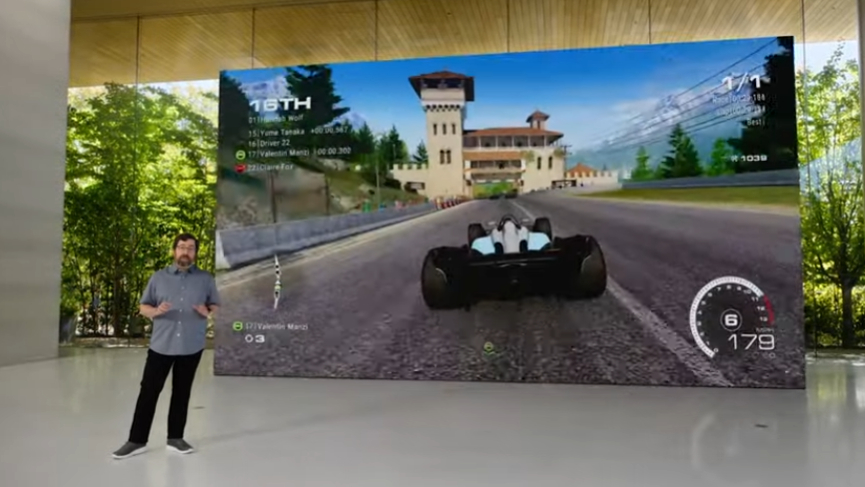
“We developed the Metal 3 software and [Apple M1] hardware in concert together,” Apple's Sandmel told me, “and it's really this tight integration of the software and hardware development that we believe enables developers to use Metal API to directly access all of this high-power performance and power efficiency of the GPU hardware.”
And it really can’t be understated how much something like this can make a difference for game developers working on increasingly complex games, with teams of dozens, if not hundreds, of programmers, computer graphics artists, and QA professionals trying to corral millions of lines of code into an enjoyable gameplay experience without absolutely destroying themselves with overwork in the process.
“Since Apple has been able to take all of the creation of the drivers for the GPUs and supporting systems in-house,” Gurney said, “if we ever do have a problem, and we need to reach out and get some support, it means that the problem will be fixed across the board on all of their systems, which is it's just such a big advantage for game development, being able to say, this specific machine, we can test and we can validate it's going to work across the board.”
Only developers can turn Macs into a true PC gaming platform
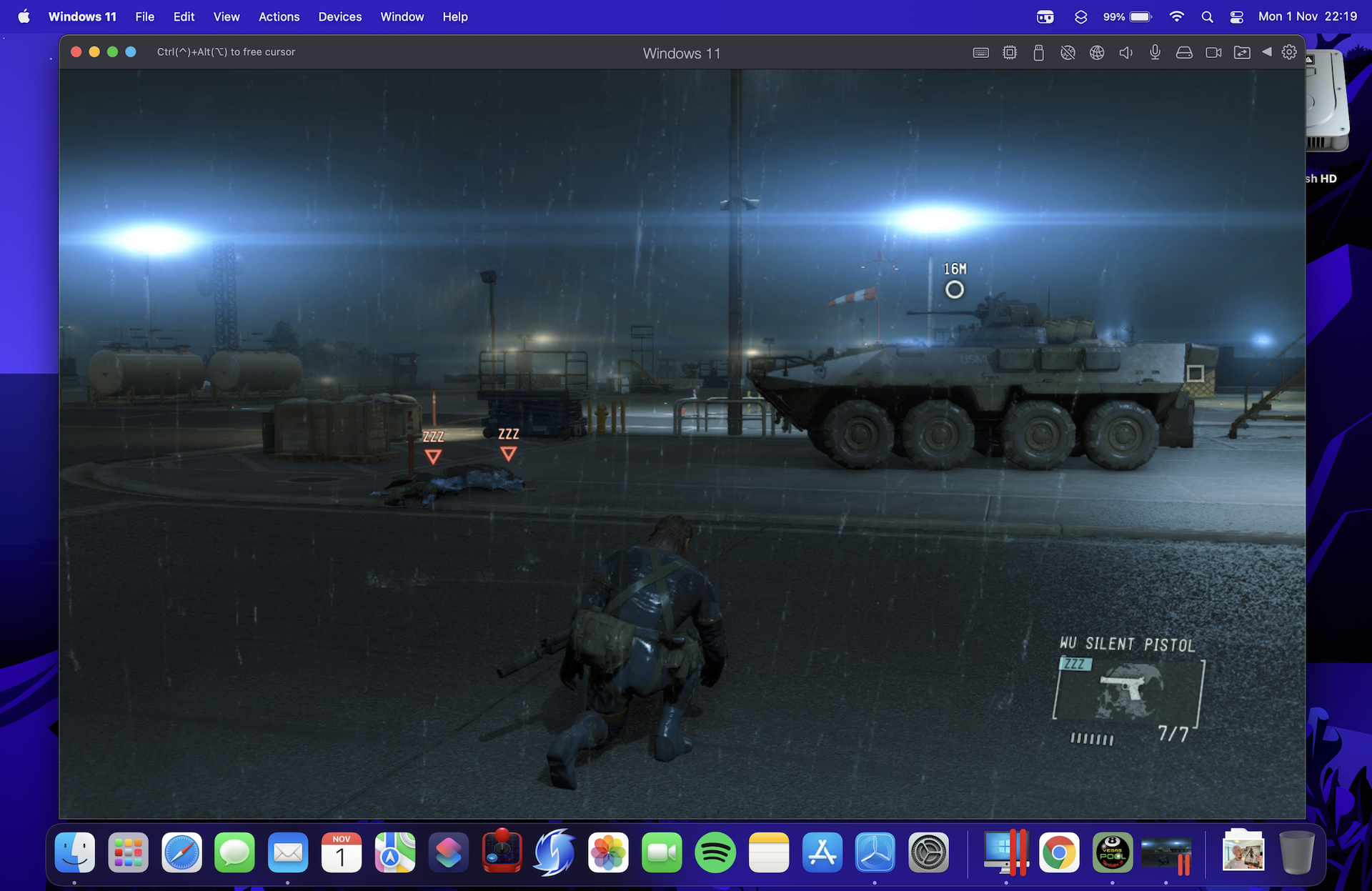
The importance of the Apple M1 and M2 chips can't be understated, since these two chips power the MacBook Air and the MacBook Pro 13-inch, which are two of the best laptops on the market right now (especially the M1 models from 2020). And while we cannot verify Apple’s claim that these are the best-selling and second-best-selling laptops in the world, respectively, we wouldn’t be surprised if that were the case.
For all the grief MacBooks and Macs get from more high-brow PC enthusiasts, there is no denying that M1-powered devices are extremely popular, and the entry-level MacBook Air with M1 chip is often cheaper than the best Ultrabooks from Windows-based competitors that are meant to challenge the MacBook Air on the market.
They're also more powerful, in my experience with them, and this means that there are a lot of everyday consumers who are picking up the M1 MacBook Air or 13-inch MacBook Pro and don't really realize the gaming potential of the laptop in their hands.
For me, it was definitely a case of curiosity, wanting to see if the hype was true.
Ben Hunter, Lead Producer, EVE Online
This is even more true of many game developers, who have most likely spent an entire career working with Windows systems and the occasional Linux command line. They've rarely worked with a Mac, and they are understandably skeptical.
The developers at CCP Games have been more receptive than most to Mac gaming and Mac game development, and not without reason. When I attended EVE Online Fan Fest 2022 earlier this year to research a forthcoming feature, just the mention of the native Mac client for EVE Online got a surprisingly loud and positive response from the keynote crowd. In fact, at least to my ear, it was second only to the near rapturous response to CCP Games CEO Hilmar Pétursson's confirming that EVE Online would not be introducing NFTs to the game.
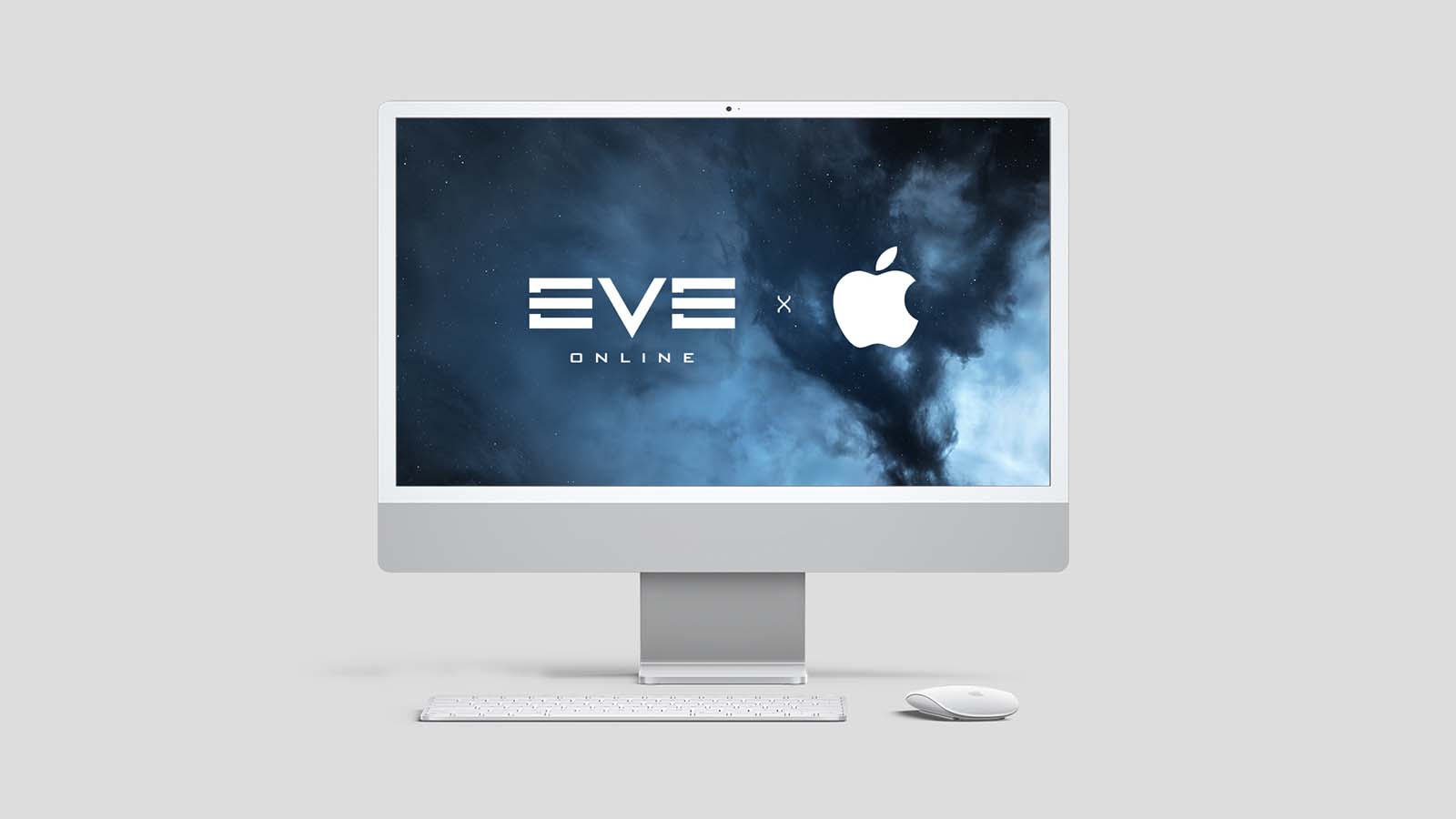
"For me, it was definitely a case of curiosity," said Ben Hunter, Lead Producer for EVE Online who was deeply involved in the development of the Mac client for the game, "wanting to see if, the hype was true."
Having spent roughly three years developing the Mac client from conception to deployment, perceptions around CCP Games on the potential for Macs as gaming platforms definitely changed.
"I believe the hardware is there," Hunter said. "It comes down more to the marrying of the hardware and software and having had the opportunity to work very closely with the [Apple] Metal team, we got a glimpse into the direction that it's going and after WWDC 2022, you can of see that Metal is coming up to par with modern graphics API's. That has built a lot of trust and faith, at least on my part in terms of where gaming is going on the Mac side of things, and I think it's actually a very exciting opportunity."
It’s Apple’s race to lose
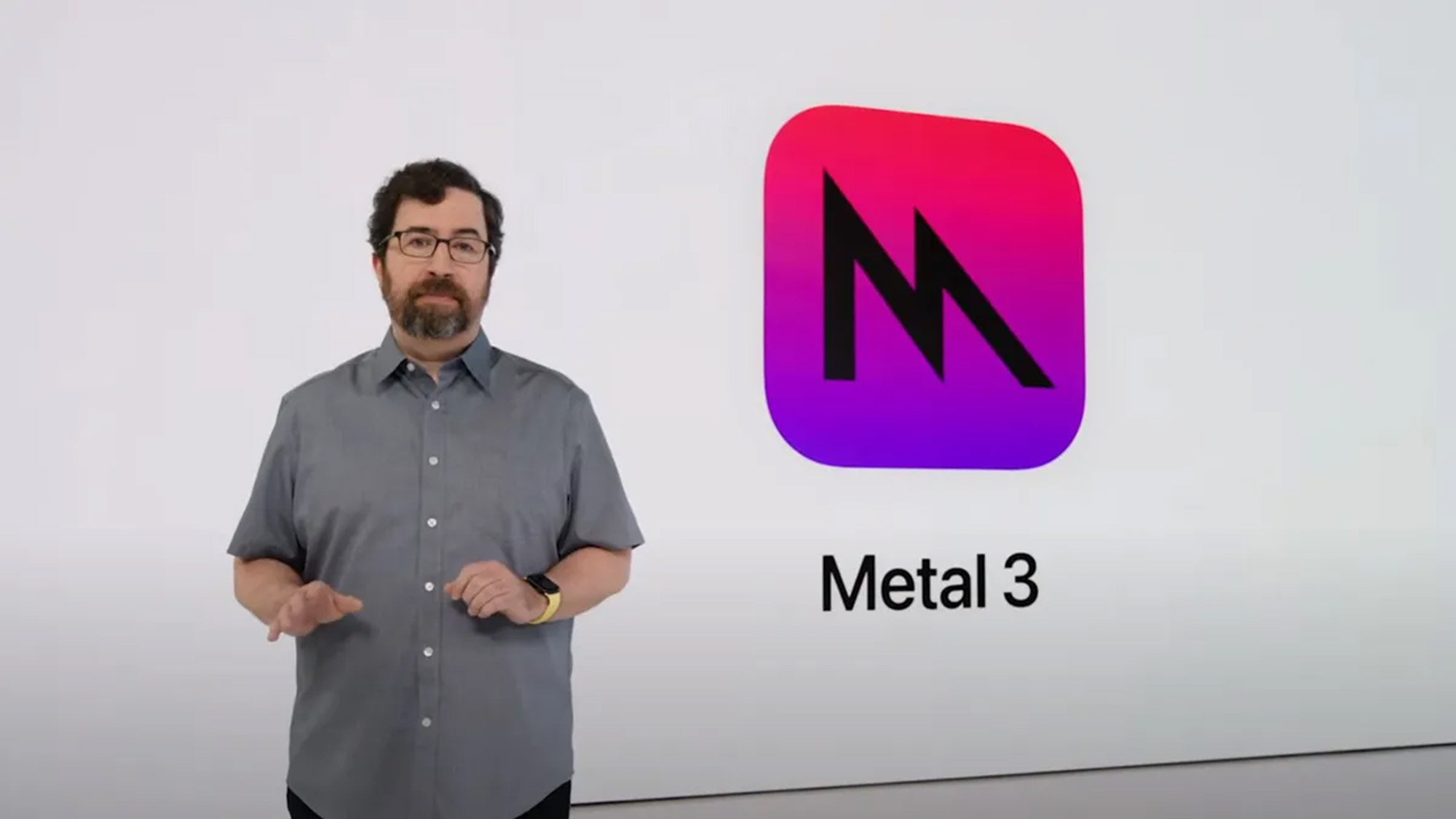
Apple’s new Metal 3 API along with Apple silicon present the Cupertino giant with a rare opportunity to correct a painful mistake.
For the first 20 to 30 years of personal computing being a thing, Apple played an essential role in the development of PC gaming itself. It was the platform for some of the greatest games of the era, including being the exclusive first home of Myst, which reigned over the 1990s as the best-selling PC game of the era until it was dethroned by The Sims 2 in the early 2000s. It was also the original platform for a little game called Halo, before Microsoft swept in and swiped Bungie from Apple.
There was a time when Apple was serious about gaming before it quit the arms race with Microsoft, but if Apple wanted to stage a comeback, it has a far more open field than many realize.
“With Metal 3 and this unified architecture that spans the entire product line, we're really bringing developers the best of both console gaming and PC gaming together in one platform,” Sandmel said.
With Metal 3 and this unified architecture that spans the entire product line, we're really bringing developers the best of both console gaming and PC gaming together in one platform
Jeremy Sandmel
And while we might be a ways away from Apple M-series chips reaching their full potential as a rival to more traditional consoles like the PS5, the fact that Apple has zeroed in and is positioning itself for this trend shows it recognizes that the future of gaming is going to continue to move away from high-end gaming rigs and meet the gaming public where it actually is.
“When we first announced the M1, it reinvigorated our Mac development community,” said Mark Grimm, a member of Apple’s Developer Relations team. “Blizzard was the first to bring a AAA game to Apple M1 when they brought World of Warcraft Shadowlands natively to Apple silicon, and 4A Games leverages the Mac and Apple M1 for Metro Exodus which is a gorgeous, gorgeous game."
"So, some really great stuff came in this past year," he continued. "And developers are increasingly realizing this modest technology investment now really will pay dividends as the Mac ecosystem grows. There are already 1000s of games on the Mac and this is really just the beginning of Mac gaming with Apple silicon.”
The Apple team says its seen a substantial uptick in developer interest since WWDC, especially around Metal 3 and MetalFX Upscaling, but there is still a ways to go before Apple will truly compete against the Windows PC as a PC gaming platform. At this point though, the writing is on the wall, and it's only a matter of time before there is a must-play Mac exclusive that will upend the entire conversation around PC gaming.

John (He/Him) is the Components Editor here at TechRadar and he is also a programmer, gamer, activist, and Brooklyn College alum currently living in Brooklyn, NY.
Named by the CTA as a CES 2020 Media Trailblazer for his science and technology reporting, John specializes in all areas of computer science, including industry news, hardware reviews, PC gaming, as well as general science writing and the social impact of the tech industry.
You can find him online on Bluesky @johnloeffler.bsky.social